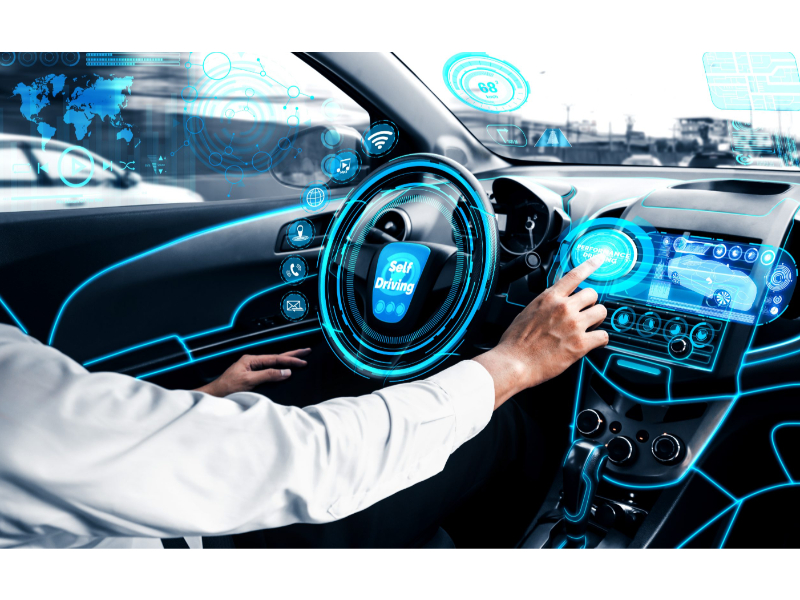- The intelligent driving system of autonomous vehicles can greatly reduce traffic accidents and casualties caused by human driving and improve the safety of road traffic.
- Autonomous vehicles can realise unmanned driving and remote control of vehicles, improving the convenience of transportation.
- The power system and energy-saving technology of autonomous vehicles can reduce exhaust emissions and energy consumption and have a positive impact on environmental protection.
As one of the applications of artificial intelligence technology in the field of automobiles, autonomous vehicles will have a far-reaching impact on transportation, urban planning, and environmental protection.
Autonomous vehicle safety
Autonomous vehicles use a variety of sensors, radars, cameras, and LIDAR (light detection and ranging), which can monitor the surrounding environment in real-time to accurately identify and analyse road conditions, vehicles pedestrians, and issue timely warnings and reminders to guide drivers to take appropriate countermeasures.
Autonomous vehicles can also realise traffic information sharing and cooperative driving through real-time communication with other vehicles and traffic infrastructure, reducing traffic congestion and the possibility of accidents.
The driving process of autonomous vehicles is completely controlled by computer systems, which can eliminate the problems of fatigue driving and distracted driving that may occur in human driving.
Equipped with emergency response and risk avoidance measures, autonomous vehicles can react quickly in the event of emergencies, realise automatic driving and intelligent obstacle avoidance, and safeguard the safety of vehicles and passengers.
Also read: What is automotive technology?
Autonomous vehicle Convenience
While traditional human-driven driving requires drivers to focus on driving operations, autonomous vehicles can be completely driverless, allowing passengers to spend their driving time on other activities such as work, rest, and entertainment, improving travel efficiency and comfort.
Autonomous vehicles are equipped with intelligent parking and automatic car-seeking functions, which can realise intelligent parking and automatic car-seeking. Drivers can realise remote parking and automatic car-seeking through cell phone applications or car navigation systems, eliminating the need to struggle to find a parking space and avoiding the problem of difficult parking.
The popularisation of autonomous vehicles provides users with more convenient vehicle reservations and hailing services. Users can call a car anytime and anywhere through voice assistants or intelligent terminals, without waiting for cabs or autonomous vehicles, which greatly saves travel time and energy costs.
The intelligent navigation system of autonomous vehicles can adjust driving routes in real-time according to traffic conditions and user needs, avoiding congested roads and traffic accidents, and providing a more efficient and convenient travel experience.
Also read: Intel bids to shape the future of smart vehicles
Autonomous vehicles: Environmentally friendly
Autonomous vehicles adopt advanced power systems and energy-saving technologies, such as electric cars and hybrid cars, which can reduce tailpipe emissions and energy consumption, and reduce pollution and damage to the environment.
The popularisation of autonomous vehicles will also bring about the optimisation and scheduling of the transportation system, reducing traffic congestion and traffic accidents, further reducing energy consumption and carbon emissions, and contributing to the reduction of greenhouse gas emissions and global climate change.
The popularisation of autonomous vehicles will help promote the sustainable development of the transportation system and promote the development of urban transportation in the direction of low-carbon and environmental protection.

